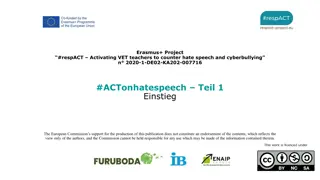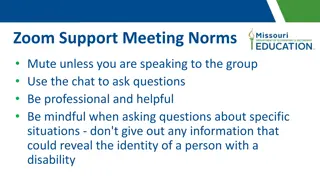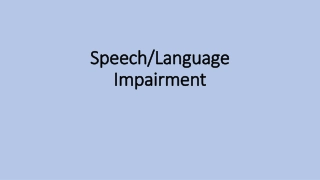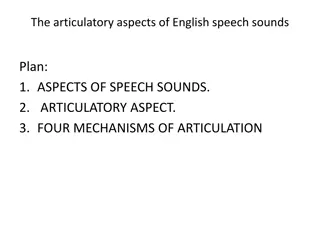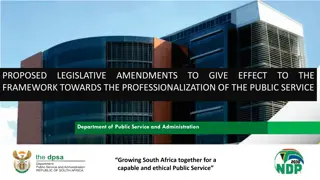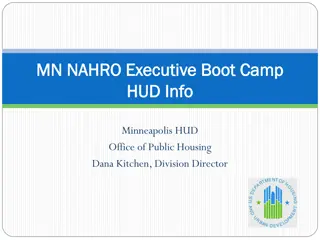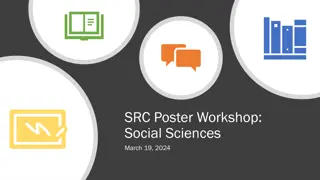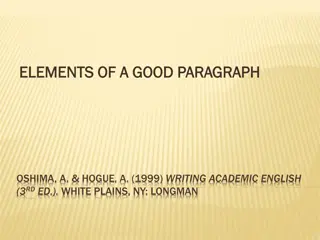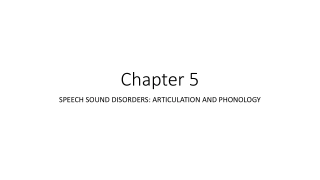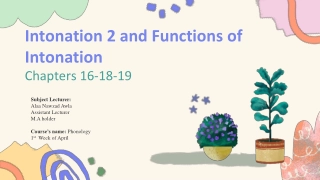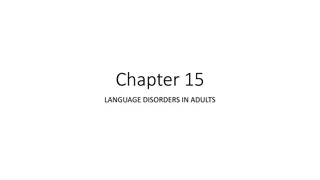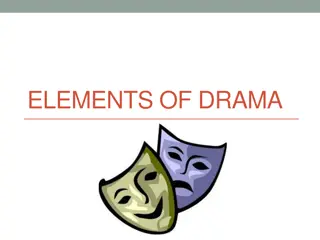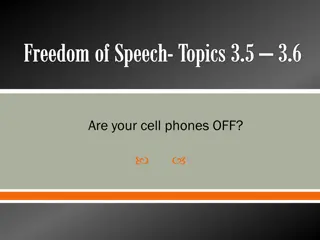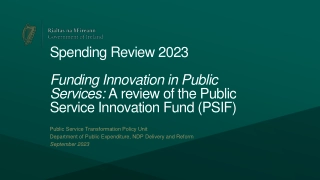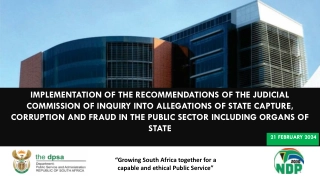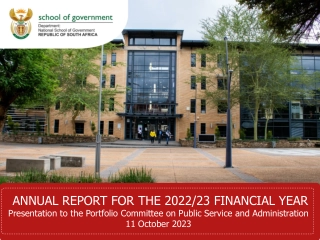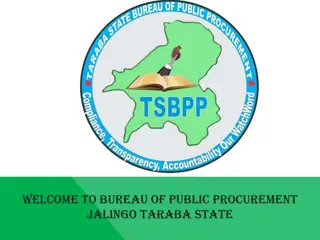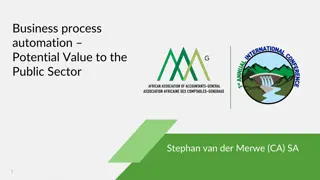Effective Speech Writing in Public Service
Learn the art of speech writing in the public service to engage audiences effectively. Explore the principles, structure, and importance of speech preparation. Discover the role of speechwriters and how speeches influence public communication in governance and beyond.
Download Presentation
Please find below an Image/Link to download the presentation.
The content on the website is provided AS IS for your information and personal use only. It may not be sold, licensed, or shared on other websites without obtaining consent from the author. Download presentation by click this link. If you encounter any issues during the download, it is possible that the publisher has removed the file from their server.
Presentation Transcript
SPEECH WRITING IN THE PUBLIC SERVICE By Musa Saleh, fwc 08033784074 musasaleh1956@gmail.com 1
Learning Objective At the end of the presentation, participants will be bale to: define speech and speech writing; discuss Principles of Speech Writing; discuss guide to speech writing and discuss structure of a typical speech. 2
Introduction Writing a speech for delivery to the public or a group isn t so much different from other types of writing. You want to engage audience s attention to convey ideas in a logical manner. In addition, the content of the speech and delivery must fit the audience. Although each speechwriter has a different purpose, what all great writers have in common is clear vision and message. Since the day of ancient Greece and the teachings of Aristotle, the art of persuasive public speaking has been a powerful and effective form of public communication especially in Governance. 3
Quotations on Speech-Writing Behind every great president, there is a great speechwriter . Every speech is a team effort involving a "long and excruciating" fact-checking process and editing by everyone . Speech is power: speech is to persuade, to convert, to compel. It is to bring another out of his bad sense into your good sense . 4
Definition of Speech/Speech-writing Speech is a formal address or discourse delivered to an audience. It could be verbal or in writing. The art of writing usually for delivery by someone else. In the public service, the principals are not expected to write their speeches by themselves but at least consider drafts prepared by their subordinate Who is a Speech-writer? A speechwriter is a person who is hired to prepare and write speeches that will be delivered by another person. In the public services, they are officers employed and trained to write speeches as situation demands. Clients of Speech-writers? Speechwriters are used by many senior-level elected officials and government executives, governors, and the president or prime minister of a country. Speechwriters are also used in the private sector, to write speeches or presentations for company presidents and Chief Executive Officers. 5
Speech preparation is the most important element to a successful presentation It is also the best way to reduce nervousness and combat fear. 6
Government Speech Writers A government functionaries communicate their vision, policies and objectives. speechwriter helps top government Some are based within the press office, some work from home, many work within the ministerial private office from where you actually get much better access to the government functionary. Some are career civil servants who occupy the role for a period of time before moving on. Some have come from outside the public service, mainly journalism. 7
What a Government Speech Writer Does It often starts with an initial meeting with the government functionary to get a broad understanding of the main points they want to make. Then, it s about having detailed conversations with policy teams often multiple teams, analysts, political special advisers and press officers. During this process, the speechwriter is the conduit through which the ideas flow. They are the lightning rod, capturing every thought, every angle and every idea offered up. 8
It is through the speechwriter that those ideas are then distilled, ordered, reordered, refined and woven into a narrative that makes sense and fits together. To do that, a speechwriter needs to be able to convey complex information simply and compellingly. They need to bring it all together into a coherent whole that, like a piece of music, ebbs and flows to hold interest and create contrasts quiet bits and loud bits, long flowing passages and short staccato points, poetry and policy prose. After the extensive collaboration, this is the part where the speechwriter needs quiet solitude, which can be in short supply in a government department. 9
Principles of Speech Writing/Steps in writing Speech Know your core message Conducting the audience analysis Determining the purpose Selection of the topic Gathering relevant data/Research Considering the nature of the speech presenter Good editorial before final speech/Draft Choose a presentation tool Practice and revise 10
A guide to Speech Writing In order to prepare a good speech, the writer should: know his/her subject, be up to date in the area to be covered by the speech. be familiar with the recent developments in the field by studying widely and cross checking his/her facts. avoid the use of bogus statistics. 11
The speech writer or presenter should be well skilled in audience assessment. He/she should also have an idea of who and how many people he/she is writing for. you may need to inject some drama, humour and appeal to people s emotions . knowledge of the size of the hall, sound effect and lighting conditions could be helpful for a public speaker 12
Style Speech writing requires use of active verbs, use simple everyday words and avoidance of abbreviations. jargons and 13
Basic Types of Speeches Informative This speech serves to provide interesting and useful information to your audience. Some examples of informative speeches: A teacher telling students about earthquakes; A student talking about her research; A travelogue about the Banana Island in Lagos; A computer programmer speaking about new software. Mr. President informing the citizens about introduction of subsidy on agricultural machineries 14
Demonstrative Speeches A demonstrative speech teaches you something. It has many similarities with an informative speech. The main difference lies in including a demonstration of how to do the thing you re teaching. Some examples of demonstrative speeches: How to start your own blog; How to bake a cake; How to write a speech. How to fly a helicopter to student pilots How to open an account in a bank 15
Persuasive A persuasive speech works to convince people to change in some way: they think, the way they do something, or to start doing something that they are not currently doing. Some examples of persuasive speeches: Become an orphan donor; Improve your health through better eating; Television violence is negatively influencing our children; Become a volunteer and change the world. 16
Entertaining The speaker provides pleasure and enjoyment that make the audience laugh or identify with anecdotal information. The after-dinner speech is a typical example of an entertaining speech. Some examples of entertaining speeches: Excuses for any occasion; Things you wouldn t know without the movies. 17
Structure of a Speech A speech should have four components: the heading, protocol, introduction, bodyconclusion. Introduction The introduction should get the audience's attention, describe the topic, state the purpose, and give an overview of the speech and its main points. Open with a detailed map of your speech--giving good directions in the beginning will save your audience from getting lost along the way. 18
Main Points Thinking of "main points" rather than a "body" can help speakers remember to keep it simple. A restless audience may not have patience for the predictable, orderly progression of concrete details and commentary that is typical in the body of an academic essay. Above all, communicate a few important points! 19
Conclusion The conclusion should summarize main points and state a strong thesis. Remember that many people struggle with auditory learning, and consequently have trouble focusing on spoken words. Your listeners may not put everything together on their own, so you should make it easier for them by summarizing your argument and reviewing central ideas in the conclusion. 20
How to Write an Effective Speech in the Public Service Know your audience Choose your topic Find your purpose Make it passionate Keep your message clear Evidence Organizing 21
SPEECH PRESENTATION 6 ways to present an effective speech i. Learn your time limit and calculate your word count ii. Divide the speech into five parts (five) iii. Tell stories or give examples iv. Employ humour but use it carefully and build it into the subject of your speech v. Read the speech aloud vi. Be yourself 22
I like the sound of this! How do I become a speechwriter? No formal qualifications are required. A flair for writing, an interest in politics and public affairs are important, as is emotional intelligence and the ability to completely absorb the language and tone of another person. Resilience and a thick skin are also needed to withstand the never-ending deadlines and pressure that are brought to bear on a speechwriter. In terms of training, there are some excellent short courses out there for aspiring speechwriters. 23
Conclusion The true art of speechwriter is to impart key messages and convey complexities in a succinct manner. Remember that you're writing a speech, not an essay. People will hear the speech, not read it. The more conversational you can make it sound, the better! Speechwriting is a job of contradictions, but that s what makes it one of the most interesting, challenging and rewarding jobs in the Public service. In the 21st century, speech will continue to play an important role in government communication. 24


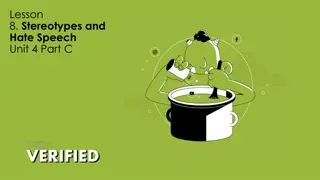
![Prevention and Combating of Hate Crimes and Hate Speech Bill [B.9B.2018]](/thumb/60513/prevention-and-combating-of-hate-crimes-and-hate-speech-bill-b-9b-2018.jpg)

